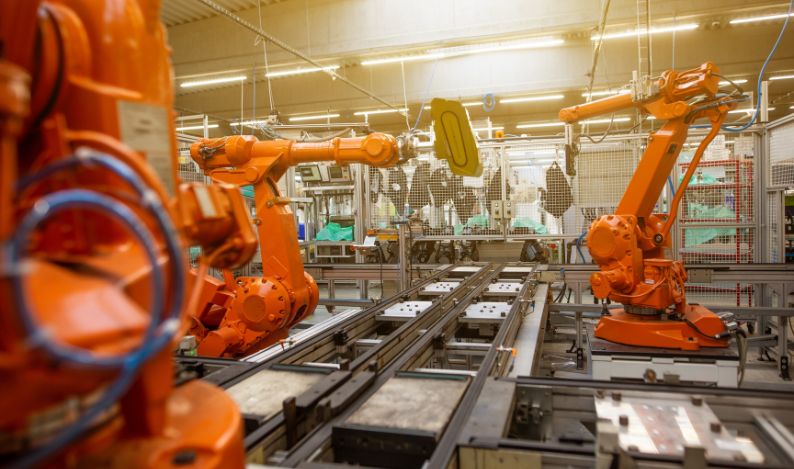Incredible Pharma Industry Trends and Innovations That Are Shaping the Industry

The pharmaceutical Industry is going through a huge transformation. Traditionally late in the adoption of technology, the industry is now rapidly changing due to advancements in technology. Artificial intelligence, big data and the adoption of blockchain technology are only some of the trends shaping the future of the industry.
The growth of the industry is making it a favourable space to be in with increasing investments, start-ups and collaborations encouraging innovation across the pharmaceutical industry. Although the industry has faced several challenges over the past few years, these have forced companies to become more innovative and react fast to market demands.
Pharma Industry Challenges
Over the past few years, the pharma industry has faced several challenges. The global pandemic created an unprecedented demand on pharma companies including an unprecedented demand for vaccine supply, shutting down of many clinical trials and a worldwide PPE shortage. One of the biggest challenges emerged within the supply chain, which has only exacerbated due to the pandemic.
These challenges have forced the industry to think of new technologies and processes to overcome medicine shortages, respond to sudden demands and address longer-term sustainability concerns.
Top 9 Pharma Industry Trends To Look Out For
1. High-tech will fuel advancement in R&D
R&D investments are increasing. Advancements in technology will improve research & development as standardising and automating processes become easier. Manual tasks will become eliminated bringing several benefits to optimising the process.
2. Data analytics will accelerate biotechnology innovation
Data analytics has brought new opportunities in Biotechnology. With Data analytics increasing the speed that R&D can be done and researchers accessing more biological, social and environmental insights, improved and more sustainable products can be developed.
3. Natural Language Processing (NLP) will advance communication in the industry
NLP improves the way humans and computers communicate with each other. This makes the process more efficient and eliminates room for error.
4. Use of artificial intelligence (AI) is accelerating drug discovery
Artificial Intelligence enables more effective solutions to complex problems associated with drug discovery.
5. Rise of Big Data & Analytics
Big data analytics investigates large amounts of data to reveal patterns, correlations and insights. Big data improves decision making, process automation and enhanced insights.
6. Precision medicine
Precision medicine also known as personalised medicine is a new concept. This form of medicine uses the genes, environment and lifestyle of that human to prevent, diagnose or treat a disease.
7. Integration of blockchain technology
The integration of blockchain technology, an advanced database mechanism increases trust, security and traceability of data shared across a business system.
8. Digital transformation across businesses
Advancements in technology are changing how businesses operate from production to customer. Most businesses are using digital technologies to create new or improve existing processes and customer experiences to meet the market demands.
9. Pharma industry might reduce its carbon footprint
Pharmaceutical companies are making a conscious effort to reduce their carbon footprint. In drug production more companies are adopting continuous manufacturing and batch manufacturing to become more sustainable.
These trends will accelerate greater integration of manufacturing and quality systems within the industry, and also provide faster decision making based on the availability of real time data.
Innovation in the Pharma Industry
1. Digital Transformation
Digital transformation is having a huge impact on the industry at the moment. This transformation is integrating all processes and data to provide real time analysis and decision making. Artificial Intelligence, Big Data & Analytics and Machine Learning are changing drug development and how manufacturing companies operate.
2. Artificial Intelligence
AI is accelerating drug discovery and development processes. Artificial intelligence can be used to automate and optimise the manufacturing process as well as planning effective product launch strategies. AI is used in each stage of designing new drugs and decreases health hazards related to clinical trials and reduces the cost significantly.
3. Big data & analytics
This allows for the analysis of large volumes of data generated during the drug discovery and development process. These analytics techniques are used on all types of medical data from patient records, medical imaging and hospital data.
4. Flexible Production
Flexible production allows for new ways of manufacturing due to the changing market demands, such as small batches for precision medicine. It shortens the development phase for new products and makes testing more efficient. It reduces the cost of the drugs and allows for more personalised medicine to be produced which has several benefits in treating and diagnosing patients. Therefore it improves the quality of the drug as well.
These innovations impact everyone; from development of the medicine to the customer. They allow flexible pharmaceutical manufacturing, which increases the supply of medicines to many regions, the use of real-world data to collect accurate patient experiences and also drug discovery and development.
Future of the Pharma Industry
We can see how the past few years have changed the pharmaceutical Industry, bringing new trends and innovations into play. Although we are only seeing some of the trends being introduced across the industry, they will improve how the pharmaceutical industry operates, making it more digital, sustainable and efficient in the future.
Over the next few years, here is how we envision for the pharma industry to evolve:
- Processes will become more automated and methods will use more technology resulting in a more digital industry, increasing productivity and increasing production rates with more efficient use of materials, better product quality and improved safety.
- New approaches to drug development and discovery using technology.
- Medical decision making with artificial intelligence as automation is enhanced and the human-intensive labour is reduced so that prediction analysis and forecasting is used through the decision making process.
- More digital prescriptions, pills etc. With the increase in digital technologies, medicines could be delivered straight to your home with digital prescriptions.
- Use 3D printing for drugs
- Greater flexibility in the manufacturing of products allowing increased outputs, more precision medicine being developed, decreased manufacturing costs, reduced production time and therefore reduced labour costs.
- Greater agility in the design of manufacturing facilities will allow the capability to discover and understand the changing product requirements and being able to quickly consider these changes while making progress in developing the product.
- Greater flexibility in the supply of raw materials is important as the industry is rapidly changing and traditional approach to supply chain management does not allow for change as it is rigid. Supply flexibility allows for the ability to adjust production levels, raw-material purchases and transport capacity, which has immense benefits.
Why Upskill and Work in the Pharmaceutical Industry?
As the industry is changing so are the roles and skills required. People are at the core of this evolution, so it is a great opportunity to upskill and be at the forefront of the talent pool. It is important to refresh your skills to meet the industry needs.

The future of the pharma industry is looking positive with continued investment and advancements. According to BioPharmaChem Ireland’s strategy document for 2023 to 2027, over 84,000 highly skilled people are directly and indirectly employed in the pharmaceutical industry in ireland. Over the next 5 years, there will be over 10,000 jobs created in the field. There is a particularly large demand in life science for people who are interested in working in manufacturing, quality, supply chain management, regulatory affairs, data analytics and process development.
How Innopharma Education can Help
Innopharma Education offers a wide range of courses for the Pharma, Food Science, MedTech and Digital Transformation sectors. Our courses are developed by industry experts, which means they focus on the skills that employers are looking for.
Our courses are recognised by industry and are delivered part-time and online, without disruption to your schedule. We have an exceptional reputation for post-graduate employment with over 70% of our graduates having gained employment or advanced further their careers within 6 months of graduating from Innopharma-run courses.
We also have an extensive network into the life science industry, which ensures our programmes are current and relevant at all times.
Ready to take the plunge in this high-growth sector?
Explore our range of pharmaceutical courses or get in touch with our team to explore your options!



















